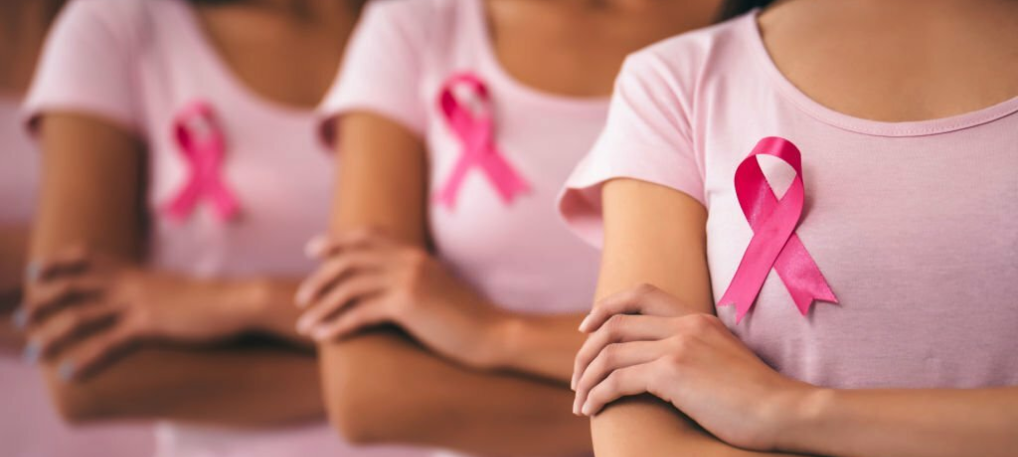The World Health Organisation (WHO), has warned of a rising cancer burden. Breast cancer remains the most common cancer among women in Nigeria, with many myths, cultural perceptions, and structural barriers hindering early detection and treatment.
In this exclusive interview with DAILY POST, Dr Nwamaka Lasebikan, Director of Research and Innovation at the National Institute for Cancer Research and Treatment, NICRAT, shares insights. Excerpts:
Breast cancer awareness in Nigeria
She had this to say: “Breast cancer remains the most common cancer among women in Nigeria, yet many myths, cultural perceptions, and structural barriers hinder early detection and treatment. Misinformation about breast cancer is widespread in Nigeria, and it often leads to delayed diagnosis and poor treatment outcomes.
One of the most common myths include that ‘breast cancer is caused by spiritual attacks or witchcraft.’ Many believe cancer is a punishment or an attack from spiritual forces. This misconception discourages people from seeking medical care and instead relying on traditional healers. Breast cancer is a biological disease, not a spiritual affliction.
Some also erroneously say ‘If I don’t feel pain, it’s not cancer.’ However, most early-stage breast cancers are painless. Waiting for pain before seeking medical help can lead to late-stage diagnosis.
There are many who believe that ‘breast cancer means automatic death.’ This belief stems from the fact that many cases in Nigeria are diagnosed at stage 3 or 4, when treatment options are limited. However, early detection through clinical breast exams, ultrasounds, and mammograms significantly improves survival rates.
There’s also this wrong notion that ‘Only women get breast cancer.’ While much less common, men can also develop breast cancer, and stigma often prevents them from seeking help.
Meanwhile, to some certain people, it’s believed that ‘Squeezing or touching the breast too much causes cancer.’ However, there is no scientific evidence that breast stimulation causes cancer.
Addressing these misconceptions through community outreach, media campaigns, and culturally sensitive education programs is crucial to improving early diagnosis and treatment outcomes in Nigeria”.
Most common risk factors for developing breast cancer
According to the medical expert, “Breast cancer risk factors include a mix of biological, environmental, and lifestyle influences.
The risk increases with age, but younger women (30s–40s) are increasingly being diagnosed.
Family history and genetics is also a factor. A strong family history of breast cancer raises the risk, especially if a mother, sister, or aunt has had the disease, i.e. first degree relative.
Women who have their first child after 30 or have never given birth have a higher risk due to prolonged exposure to estrogen.
Lack of breastfeeding is a risk factor too. Breastfeeding reduces risk by lowering estrogen levels, but many urban women are opting for shorter breastfeeding periods.
Then you talk of obesity and poor diet. It’s important to stress here that high consumption of processed foods, trans fats, and sugary drinks is a growing problem in Nigeria, increasing cancer risk.
In addition, alcohol and smoking – as lifestyle factors, once uncommon in Nigerian women – are becoming more prevalent and contributing to increased cases.
Another risk factor is exposure to environmental toxins. Nigeria has poor waste management and industrial pollution, leading to increased exposure to carcinogenic chemicals that can affect breast tissue.
So, understanding these risk factors enables individuals to make proactive lifestyle changes and prioritize regular screenings.”
Does breast cancer have anything to do with genetics?
Yes, genetics plays a role, but not all breast cancers are hereditary.
In Nigeria, about 5–10% of breast cancer cases are due to inherited genetic mutations, mainly BRCA1 and BRCA2.
Genetic testing is not widely available or affordable, meaning many high-risk individuals are unaware of their genetic predisposition.
A family history of breast cancer, especially in a first-degree relative (mother, sister, daughter), increases risk significantly.
There is growing evidence that African and Nigerian women may have unique genetic risk factors, which require more research and investment in genomic medicine.
For women with a strong family history, early screening (clinical breast exams, ultrasounds, and mammograms) from age 30 is advised. Genetic counseling should be integrated into oncology care in Nigeria to help high-risk individuals make informed decisions. At NICRAT, we are working to understand the genetic drivers of breast cancer in Nigerian women.
Are there specific lifestyle changes or diets that can help reduce the risk of breast cancer?
Yes! While no lifestyle choice guarantees prevention, certain habits can significantly lower the risk.
Eat a balanced, plant-based diet. Increase vegetables, fruits, whole grains, legumes, nuts, and foods rich in antioxidants. Reduce processed meats, deep-fried foods, and high-sugar diets, which contribute to obesity and inflammation.
Also, it’s important that one maintains a healthy weight. Obesity, especially after menopause, increases estrogen levels, raising breast cancer risk. Exercising regularly can also help. At least 150 minutes of moderate physical activity per week lowers hormone-related cancer risks.
In addition to the above, one should limit alcohol consumption. This is because even moderate alcohol intake increases breast cancer risk.
Then again, women should breastfeed if possible – prolonged breastfeeding (>1 year) lowers risk, and avoid smoking and exposure to harmful chemicals.
Meanwhile, many Nigerian women use skin-lightening creams containing harmful chemicals, which may have long-term carcinogenic effects. Therefore, investing in health education programs to encourage lifestyle modifications should be prioritized at the national level.
At what age should women start getting regular mammograms?
For women at average risk: Start mammograms at age 40, then every 1–2 years.
For high-risk women (e.g., family history, BRCA mutations, previous chest radiation): Screening should begin as early as 30 years, often with ultrasound and MRI before mammography.
Attempts are being made to provide breast screening programs and integrate ultrasound-based detection, which is more accessible.
Raising awareness about clinical breast exams and self-breast awareness remains critical.
How can family members and friends best support someone going through breast cancer treatment?
Following a diagnosis of breast cancer, many women are anxious and emotionally unstable. Offering emotional support, encouragement without judgment or pity, being present are what matters more than words. Provide them with this pillar of support all through their cancer journey from diagnosis to treatment and post treatment.
Other ways to support is by assisting with hospital visits, cooking, and childcare.
Breast cancer treatment is expensive, and many patients struggle with out-of-pocket costs. Family crowdfunding can help.
Encourage adherence to treatment. Many patients abandon chemotherapy either due to side effects, financial constraints, or cultural beliefs.
Avoid harmful statements – instead of “Be strong,” say, “I’m here for you.” Instead of “God will heal you, if you have faith,” say, “Let’s explore all treatment options together, and believe God to ensure the treatment works.”
Community and faith-based organizations should play an active role in supporting cancer patients rather than promoting alternative, unproven treatments.
What are some challenges breast cancer survivors face after treatment, and how can they be addressed?
Breast cancer survivors in Nigeria face fear of recurrence. Here, support groups and counseling can help.
Lack of follow-up care – many hospitals don’t have structured survivorship programs.
Also, financial hardship is another challenge as post-treatment expenses (hormonal therapy, imaging) remain high.
In addition to the above, many survivors struggle to return to work due to stigma.
Whereas, mastectomy and chemotherapy can as well affect confidence.
Solutions to the above challenges include implementing survivorship care as detailed in the national cancer program, and promotion of policies protecting survivors in the workplace.
Final words
Breast cancer awareness in Nigeria must go beyond annual campaigns. It requires consistent education, improved screening accessibility, and policy reforms to ensure early detection and better survival outcomes. On World Cancer Day 2025, let’s commit to advocating for affordable screening programs, challenging myths and misinformation, and supporting survivors beyond treatment.
Together, we can transform the breast cancer narrative in Nigeria and save more lives.
Source: DailyPost






